Innovation &
collaboration
Science to impact
Building on our outstanding research, QuTech’s economic impact in the Netherlands, and particularly in Delft, is becoming increasingly visible. It is not only evident from our research collaborations with globally operating technology giants but also from our rapidly expanding ecosystem of quantum companies. This ecosystem encompasses start-ups and scale-ups in quantum computing and quantum networking, as well as international companies that join the House of Quantum to establish a Dutch or European presence in proximity to the quantum talent that is concentrated in Delft.
The companies within the Delft ecosystem are transforming laboratory discoveries into tangible real-world applications, extending the quantum domain to involve an increasing number of people and disciplines. As the ecosystem has expanded, these enterprises and our collaborative research have become an integral part of our joint efforts to advance quantum technology. We can safely say that we are building the quantum future together.
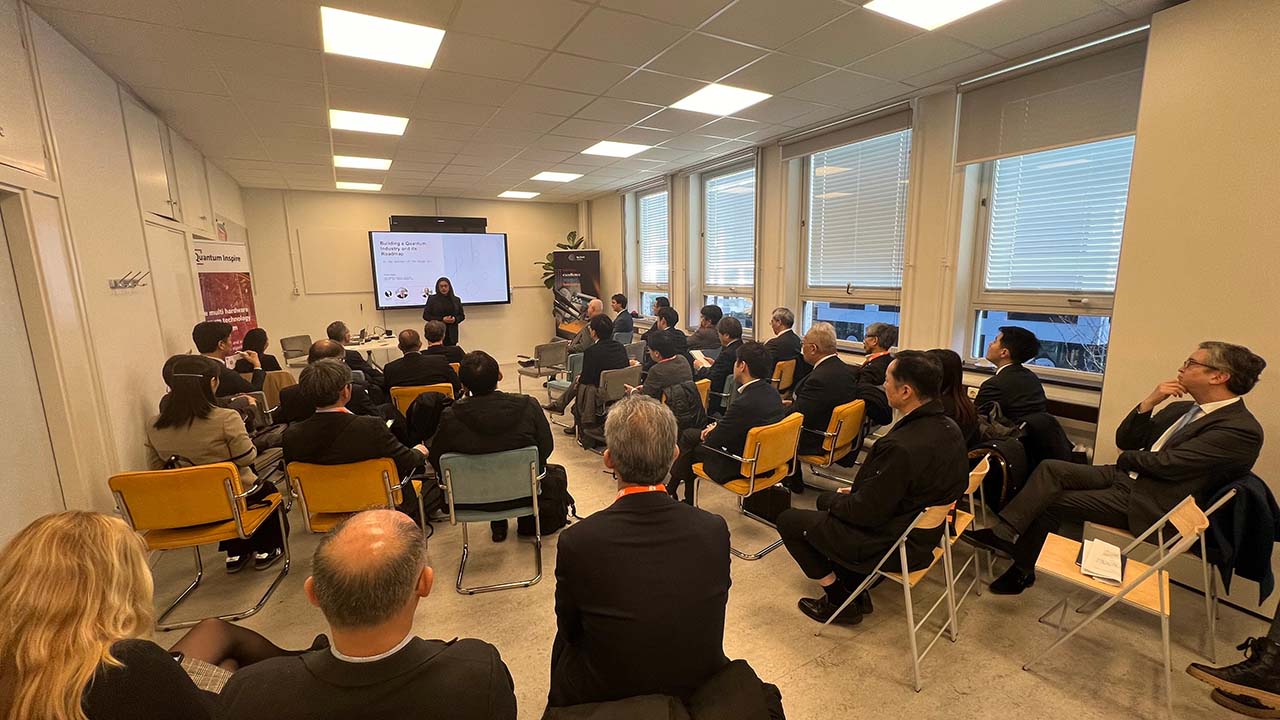
Partnerships to accelerate development
Highlights
One of the papers receiving worldwide attention in 2024 was published in Science Advances, detailing how an international research team led by QuTech demonstrated a network connection between quantum processors over metropolitan distances and existing fibre. This marked a key advance towards a future quantum internet. The result was made possible in collaboration with, and supported by, industry partners KPN, SURF, OPNT, Fraunhofer ILT and Element6.
In April, QuTech and Eurofiber, together with QuTech spin-out Q*Bird and other partners, installed a proof-of-concept quantum communication system between locations in the Utrecht area. This demonstrated the feasibility of secure communication over carrier-grade dark fibre, integrating both conventional network and quantum encryption equipment.
In January, QuTech partner Fujitsu and TU Delft announced the establishment of the Fujitsu Advanced Computing Lab Delft, an industry-academia collaboration hub dedicated to developing quantum computing technologies.
One example of the results from the QuTech-Fujitsu collaboration on 2024 was the development, announced in February, of new ultra-cold electronic circuits to control diamond-based quantum bits. These circuits can operate in a single compact cryogenic refrigerator, helping to address the ‘wiring bottleneck’.
In the first half of 2024, QuTech announced the formation of the HectoQubit/2 consortium, uniting with Qblox, OrangeQS, QuantWare and Delft Circuits to build full superconducting quantum computing systems. These systems will be made publicly available through Quantum Inspire.
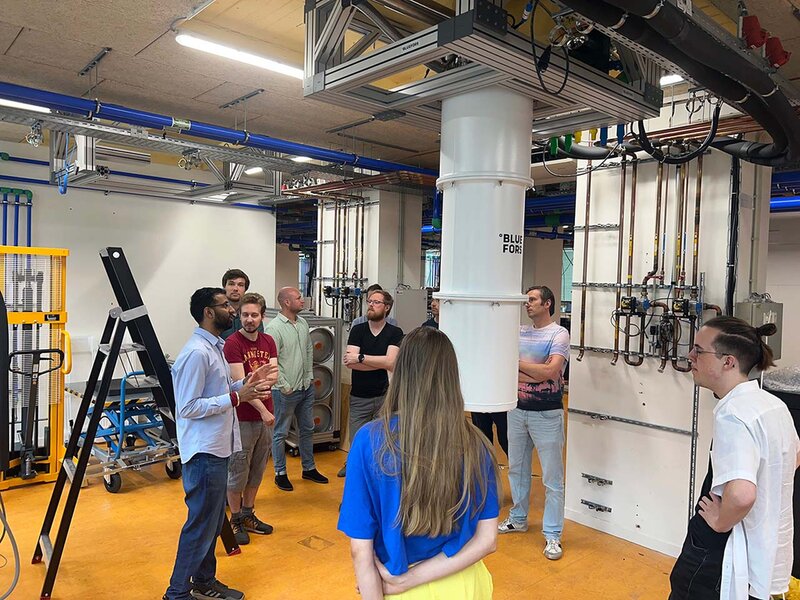
In September, Fujitsu, apart from granting QuTech an expansion of the budget and scope of their collaboration, signed a framework agreement with TU Delft to start a long-term collaboration in the field of Quantum Technologies and Quantum High-Performance Computing (QHPC), including applications.
In November, QuTech and the Danish NNF Quantum Computing Programme (NQCP) formalized their collaboration in a partnership agreement. The partnership is centered around the development of silicon-germanium epitaxial heterostructures for quantum processor chips. These materials pave the way for the operation of high-performance quantum processors.
November also saw the launch of QuKiT. The project, funded by an EIC Pathfinder grant, aims to develop a novel hybrid qubit: the Kitmon, which is a hybrid system composed of a superconducting qubit integrated with a topologically protected Kitaev chain. The consortium is led by QuTech, with partners at the IOM Materials Foundry at the National Research Council of Italy, the Institute of Science and Technology Austria (ISTA), Energiatudomanyi Kutatokozpont, the Spanish National Research Council, the University of Augsburg, and Orange Quantum Systems.
At Qblox’s 5th anniversary celebration, in December, QuTech’s Research Director Lieven Vandersypen and Qblox's COO Eric Kievit signed an agreement to kick off the QuTech-Qblox Quantum Excellence Center partnership, which aims to foster more collaboration and growth in the quantum sphere.
With the latest and final scientific data being collected, December also marked the close of the QLINK project. This collaboration between KPN, SURF, OPNT,Fraunhofer,and QuTech aimed to make significant progress in building the first quantum link connecting the Randstad, by entangling remote quantum processors over a significant distance of 10km, while using deployed optical fiber. The results will be published in 2024.
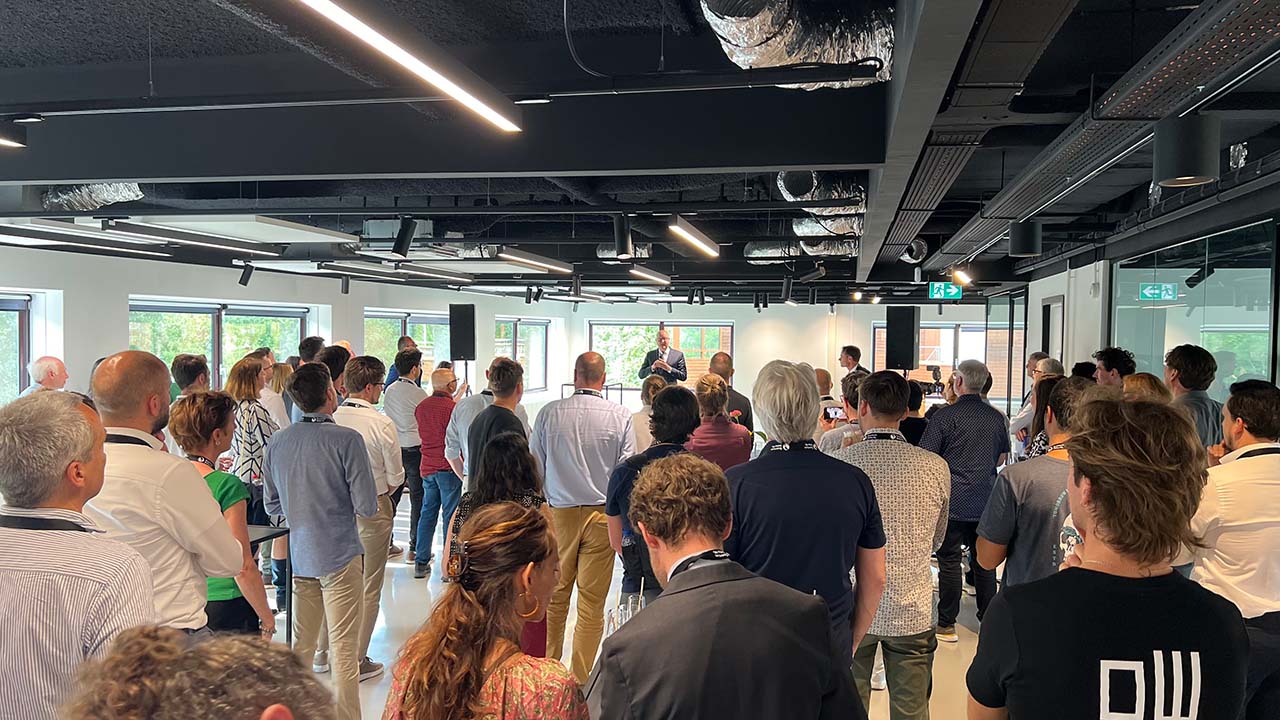
QuTech entrepreneurs: spin-offs, spin-outs and patents
Highlights
In 2024, no fewer than three startups by QuTech researchers were launched: Groove Quantum, QHarbor and Delft Networks.
Many new initiatives emerged from our successful SPARK sessions – workshops focused on finding and advising nascent entrepreneurs. In 2024, we organised both beginner and advanced editions.
Contributing to our valorisation goals, researchers at QuTech continued to generate intellectual property at a high level, filing 18 patent priority filings and laying the groundwork for new companies.
The strong concentration of academic research and high-tech industry in Delft continues to attract businesses that are not originally from the region. In 2024, Qunnect, Qubitrium, Xairos and Equal1, among others, joined House of Quantum as residents, with others joining the growing Delft community supported by Quantum Delta Delft virtually or as House of Quantum guests.
The Delft quantum ecosystem reached another important milestone: the number of employees at Delft startups and scale-ups approached 400 by the end of 2024 – surpassing the number of employees at QuTech, from which many of these companies originated. This marked an increase of nearly 50% compared to the end of 2023.
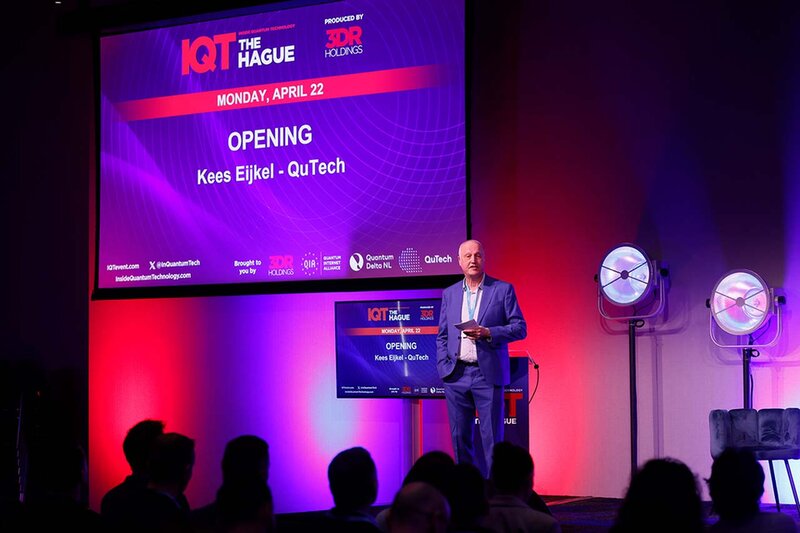
Delft-based companies also saw more than a doubling of their funding in 2024 compared to the previous year.
In May, the second House of Quantum building officially opened, serving as a new hub for both local and international quantum companies. The first members to move in included Q*Bird, the Quantum Computer Field Lab (by Qblox, InnovationQuarter and Demcon), OPNT, Hoursec, Xairos, the Mechanical Sensing Testbed (AMOLF and Delft University of Technology), KIXS, and Equal1.
In April, Single Quantum and Toshiba Europe announced their solution to significantly extend the transmission range for QKD deployment over fibre connections, reaching up to and beyond 300 km.
In May, QuTech spin-out Q*Bird raised €2.5 million to accelerate the growth of its quantum security technology.
In June, QuTech spin-off Qblox secured $26 million in Series A funding to expand and accelerate the development of their quantum control stack.
In November, Q*Bird, in collaboration with SURF and Quantum Delta NL, successfully installed a multipoint-to-multipoint Quantum Key Distribution (QKD) network in Utrecht, as part of the QCINed and EuroQCI projects.
Also in November, QuTech spin-off OrangeQS unveiled Max, the world’s first 100+ qubit quantum chip test system, launched jointly with IQM.
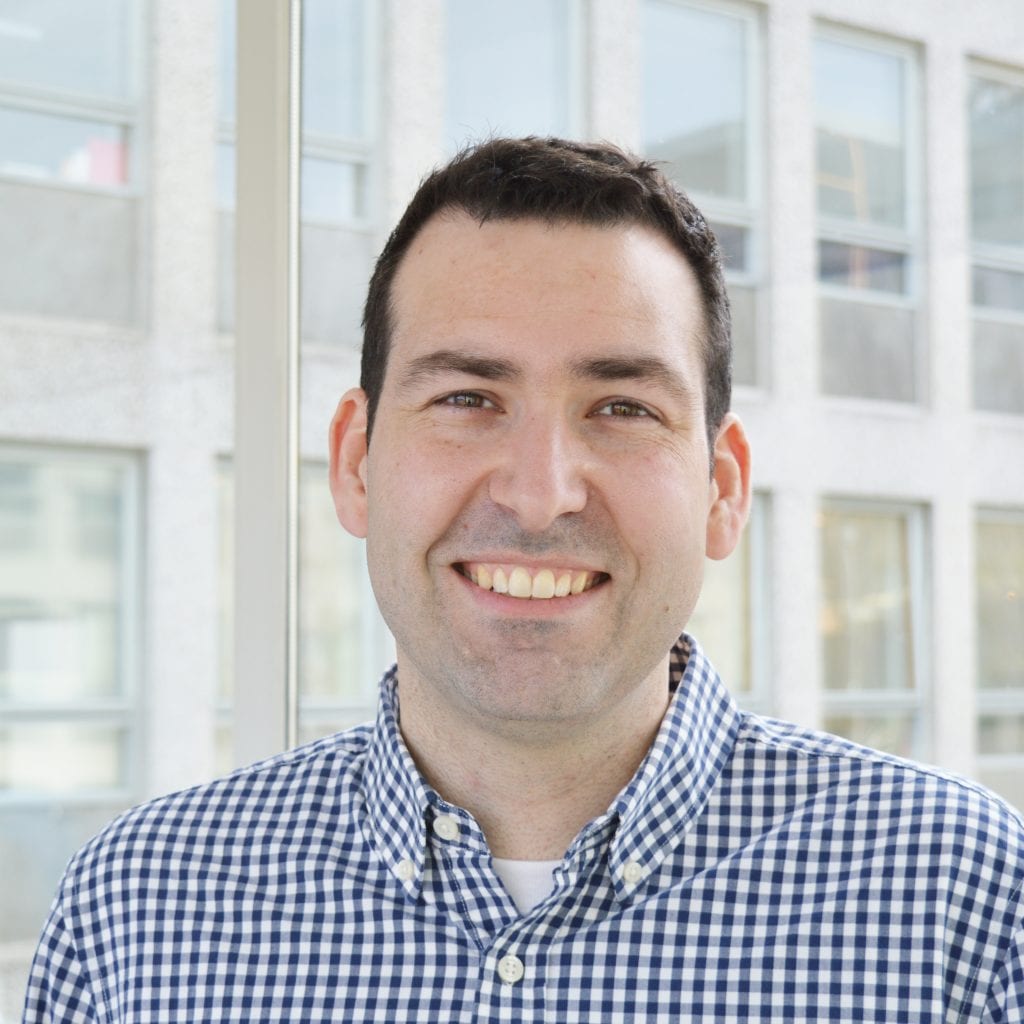
Joshua Slater, Q*Bird
“There's just so much that could be built and achieved, and I want to be a part of it.”
“The formal founding of Q*Bird at the beginning of 2022 was one of the big highlights of the year. Something that was three years in the making. Another big one was when we ‘graduated’ from being an internal part of QuTech to becoming a standalone entity later in the year. A third highlight was when the first real funding came in. Of course, money is great, but what felt really good was that we finally got that external validation. It was really like: “Wow, someone trusts us.”
I think the big benefit of QuTech was that it provided us with a safe, well supported environment. Being able to lay a foundation, shape our ideas and refine our plans for Q*Bird, was invaluable. Also, the QuTech brand brings a lot of value. It helped open doors and start early conversations with potential partners and customers.
I find the things we're doing truly interesting and fun. I really think we can build fantastic devices that people might want and enjoy. It’s exciting to see the potential of a communication web covering the Netherlands and extending into other countries using our equipment. There's just so much that could be built and achieved, and I want to be a part of it, honestly.”
